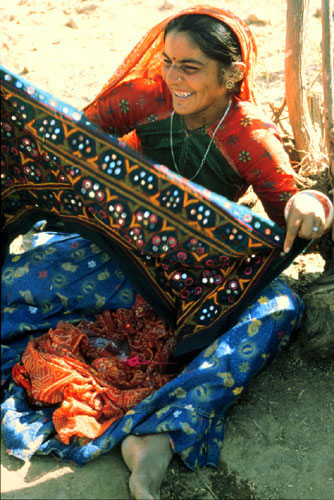

 |
|
Association for Women's Rights in Development builds cooperation among development and human rights researchers, practitioners, policymakers and activists around the world.
Women's Thrive Worldwide (formerly Women's Edge) is a dynamic coalition of individuals and organizations dedicated to ensuring that U.S. International aid and trade programs work for women.
Global Fund for Women is the largest foundation in the world (and the only one in the U.S.) that focuses exclusively on international women's issues. The Global Fund provides seed funding to support the activities of women's groups overseas that are working on critical women's issues such as gaining economic independence, increasing girls' access to education, and reducing violence against women
Freedom from Hunger fights chronic hunger and poverty with self-help programs that combine credit and education. Freedom from Hunger provides small, short-term loans to low-income women worldwide, at the same time educating those borrowers about health, nutrition and managing micro-businesses more effectively and profitably.
Aid to Artisans offers practical assistance to artisans world-wide, working in partnerships to foster artistic traditions, cultural vitality and community well-being through training and collaboration in product development, production and marketing.
More Actions you can take -
- To help an abused woman learn entrepreneurial skills and obtain
microenterprise loans in 6 countries that are not among the 12 included
in In Her Hands, visit: www.womenforwomen.org
- View Save the Children's excellent new report titled: State of the World's Mothers 2011. The Save the Children's report
demonstrates the ways that children's well-being is inextricably linked
to the well-being of their mothers: www.savethechildren.org
- Friendship Bridge operates microenterprise credit programs
for 2500 indigent women in Guatemala and distributes 1600 scholarships
to borrowers' children for school tuition and supplies. The organization
offers two trips a year so visitors can observe their microenterprise
projects. www.friendshipbridge.org
- The Heifer Project International serves 115 countries and
runs a special program for women: Women Helping Women Overcome Poverty:
Women in Livestock Development (WILD), which gives women farm animals
as well as training in leadership, community development and environmentally
sound farming. www.heifer.org
- Zimbabwe Artists Project is a nonprofit that markets art
made by the rural women in Weya who are featured in the Zimbabwe chapter
of In Her Hands. ZAP helped the artists start a cooperative, assists
with bookkeeping, transports artists and supplies. Find out more by
visiting their website.
- Foundation for International Community Assistance (FINCA)
has, since 1984, established more than 12,000 village banks in 21 countries
in Latin America, the Caribbean, Africa, Eastern Europe and Central
Asia, so low-income women can arrange micro-loans. Twenty-two percent
of their small loans are taken by women producing products, including
crafts. Ten percent of the net proceeds from the arrangements you order
from 1-800-Flowers will go to FINCA. www.villagebanking.org
- Global Partnerships Microenterprise Fund links individuals
and businesses with programs in Latin America, providing credit and
other tools that help people attain economic self sufficiency. This
nonprofit organization offers PartnerTrips to potential donors. www.globalpartnerships.org
- Turtlewill provides medical, economic and education
aid to help traditional people in remote areas preserve both culture
and dignity. A donation of $1500 is enough to start a craft cooperative
in Mauritania, Niger or Mali. http:www.turtlewill.org/
- PAVA Foundation works in the Guatemala highlands,
helping communities obtain everything from women’s education to
water. PAVA Vice President/Co-founder Vey Smithers is featured in In
Her Hands’ chapter, Benita and the Weaver’s. Almost 100%
of all donations go to projects. www.pavafoundation.org/
- Cross Cultural Journeys Foundation is a way to
give back to the people and places this adventure travel company visits
in Ethiopia, Tanzania, Kenya and Tibet. Travelers can donate a day of
community service as they visit community projects such as craft co-ops.www.crossculturaljourneys.com/foundation.html
- This idea won’t feed people but it will
feed spirits. Art photographer Penny Bauer has created black-and-white
images of women’s hands holding gifts of wisdom—a beautiful
interpretation of In Her Hands. Without charge, you can design and send
an e-card using a picture from Penny’s collection. www.bauerstudio.com/WiseWomen.html
